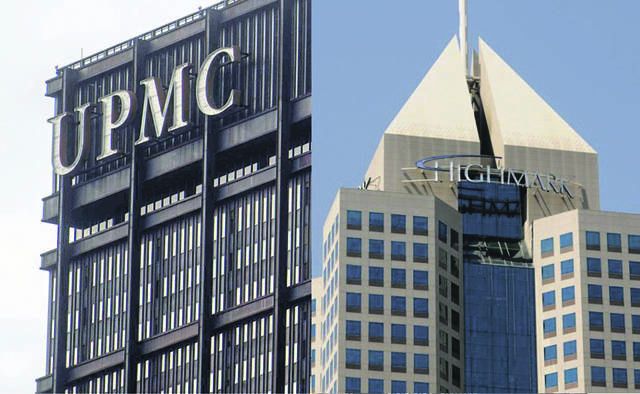UPMC on Friday asked the state Supreme Court to deny Pennsylvania Attorney General Josh Shapiro’s push to delay its contractual breakup with rival Highmark this summer, when thousands of Highmark-insured patients are set to lose access to most UPMC hospitals and doctors.
UPMC further derided Shapiro’s last-ditch effort to halt the looming breakup between the nonprofit Pittsburgh health care giants as a misguided attempt to “pour its old wine into a new legal bottle.”
Attorneys for UPMC argued in a 24-page filing that Shapiro’s appeal should be rejected on several grounds — including that his office has no such authority, is flouting prior court rulings and waited too long to seek changes to a state-brokered agreement to split signed five years ago.
The compromise aimed to ease the transition for patients after it became clear that Highmark and UPMC, which both control insurer arms and competing hospitals, refused to agree on a contract.
For starters, UPMC’s executives never would have signed the 2014 consent decree with rival Highmark had they known the agreed-upon, June 30, 2019 expiration date could or would ever be changed, UPMC wrote.
“That defeats the purpose and plain intent of having a termination provision in the first place,” UPMC wrote. “No one would have executed a document with a termination clause that was subject to infinite change at the discretion of the adverse party.”
UPMC argued that “the entire purpose of the Consent Decree was to provide a five-year runway to the end of UPMC and Highmark’s contractual relationship,” stating that “any person or employer who might be impacted” has had five years “to plan accordingly.”
Shapiro’s efforts also go beyond the initial consent decree and seek to impose new requirements, including forcing UPMC to replace a majority of its board.
Among other demands, Shapiro asked in his Feb. 7 legal petition that UPMC hospitals and doctors to accept Highmark patients “in perpetuity” and drop a controversial prepay rule threatening to impact thousands of Highmark-insured Medicare Advantage patients when it takes effect in July.
UPMC argued that Shapiro has no power to enact policies nor “bring stand-alone ‘public interest’ claims designed to remake health care” through the court system.
Shapiro — who defends his right to intervene in the name of overseeing public charities for the public good — made his appeal to the Supreme Court on Monday.
It followed last week’s ruling by a Commonwealth Court judge that the expiration date of a state-brokered consent decree between UPMC and Highmark cannot be changed nor extended indefinitely. Judge Robert Simpson said that his ruling reinforced a state Supreme Court decision issued last summer, when Shapiro was unable to extend the expiration of the decree until the end of 2020 for patients with Medicare Advantage plans. Such plans are the increasingly popular, privately offered alternatives to traditional Medicare.
Shapiro’s office contends that Commonwealth Court “erred as a matter of law because it gave undue protection to one term of the Consent Decree.” The attorney general argues that the decree includes a general modification provision that “distinctly allows modification of the entirety of the Consent Decree without restriction.”
“Modification serves the public’s interest, as a lack of modification results in people being denied care or being forced to pay a much higher price for it,” Shapiro wrote in his initial 22-page appeal to the Supreme Court. His office proposed an expedited hearing schedule culminating in arguments to be made in court in mid-May.
Highmark has expressed support for Shapiro’s efforts.
Simpson found that the Attorney General’s Office has authority to modify the consent decree in the name of public interest, despite objections raised by UPMC, Senate GOP leaders and the Hospital and Healthsystem Association of Pennsylvania that Shapiro is overstepping his bounds. He suggested Shapiro seek an immediate appeal if he wanted to fight the expiration date because of the urgency.
Shapiro now has less than 80 days before the decree expires.
UPMC accused Shapiro of trying to rush through “an impossibly compressed judicial process” and force everyone involved to “make frenetic preparation for a possible trial” in May.
Should Shapiro win his appeal, UPMC argued, the result would be further confusion and disruption to the health care marketplace.
Under the 2014 consent decree, Highmark-insured patients will become out-of-network at most UPMC hospitals on July 1.
UPMC further plans to enforce a new rule that requires out-of-network patients to obtain a cost estimate and prepay — in full — for all non-emergency services before receiving treatment.
Highmark has asked UPMC to reconsider the rule and called it “unnecessary.”








